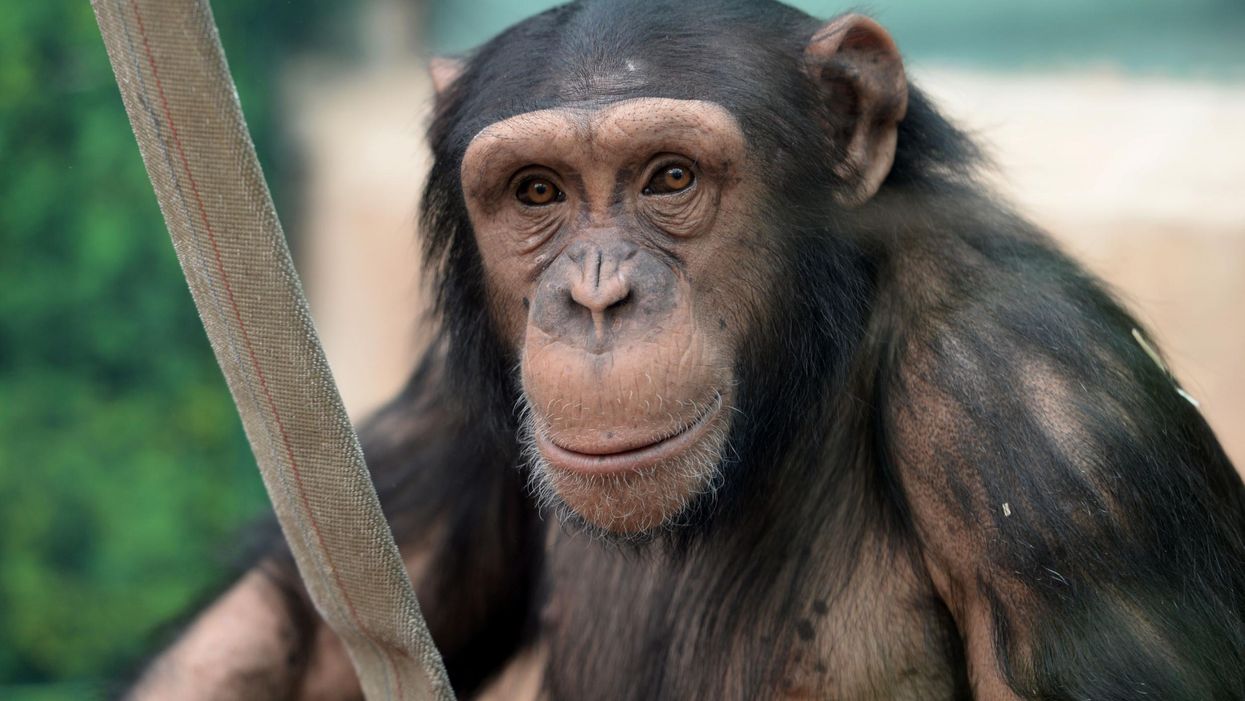News
Jessica Brown
Aug 10, 2017

Picture:
AFP/Getty / Guillaume Souvant
Psychopaths, characterised for their superficial charm, inhibition and callousness, have been studied extensively over the years. Now, a group of researchers are turning to our closest animal relatives for clues surrounding the personality disorder.
Scientists from Georgia State University studied 164 chimpanzees living at the Yerkes National Primate Research Center in Atlanta, Georgia, and the National Center for Chimpanzee Care at the University of Texas.
The chimps were rated using a personality questionnaire by staff members who knew them well. It tested their levels of boldness, meanness and disinhibition (a lack of restraint manifested in disregard for social conventions).
The study, published in Frontiers in Neuroscience, also tested for a gene (AVPR1A), which has been found to have a role in both human and animal behaviour. More specifically, the gene's role on a substance known as vasopressin, a molecule known to play a role in social behaviours man and beast. Some have also linked it to aggression in people with personality disorders. Variations of the gene have also been connected to some of the traits found in psychopathy, in both humans and chimps.
The third aspect of the study looked at which chimps were reared by their own mother, or by humans. One in three of the sample of chimps were raised by humans.
According to the research's results, the chimps had a common variation in that AVPR1A gene, and had higher levels of disinhibition. The twist however, was that the variation was only found in those who had been reared by their own mother. Variations of the gene also correlated with their total psychopathy scores.
But there was no such relationship with the chimps reared by people.
The study’s findings suggest our genetics , and how we’re reared, are related to psychopathic characteristics.
It's a veritable nature vs nurture conundrum.
On the one hand, our genetic make up and levels of vasopressin “provide additional compelling evidence that psychopathic tendencies are rooted in basic, evolutionarily-meaningful dispositions,” according to the research.
While the environmental factors, specifically how the chimps were raised, also seem to play a similarly compelling part in addition to genetics.
Top 100
The Conversation (0)












